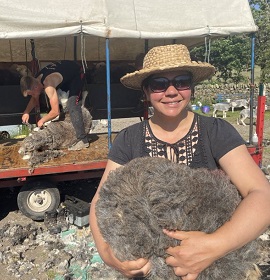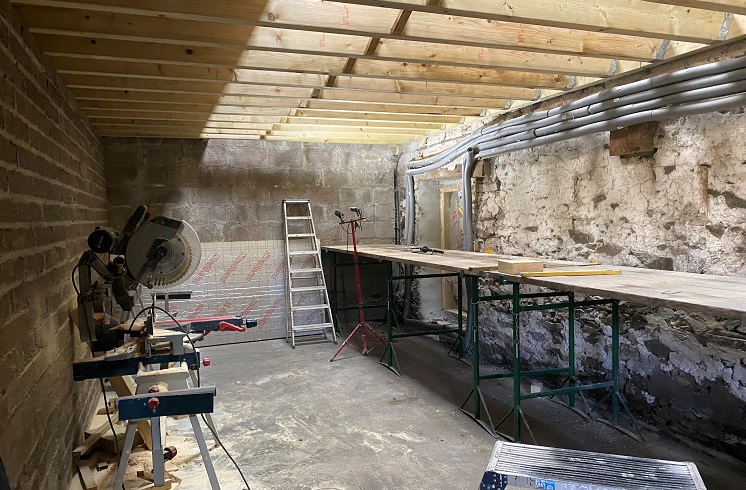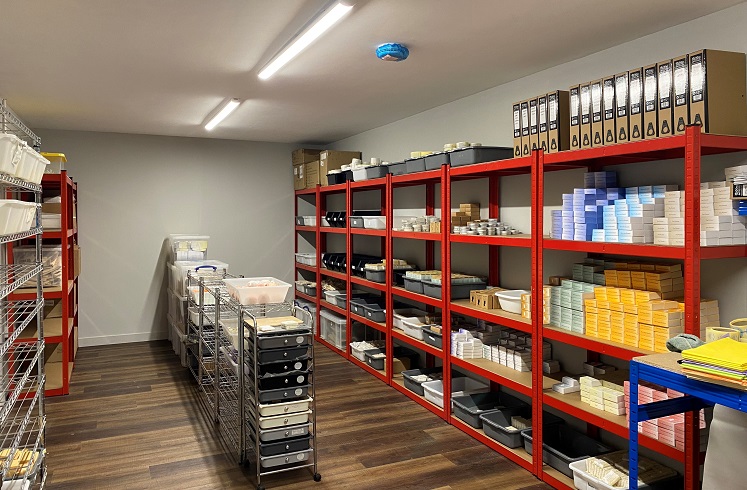
Almost £600,000 has already been allocated in the Lake District as part of a national grants programme to help local farmers and landowners adapt for the future, become more resilient and deliver bigger and better outcomes for the environment, people and place.
The three-year Farming in Protected Landscapes (FiPL) programme was launched last year by the government (Defra) and is being managed locally by the Lake District National Park Authority. Lake District farmers and landowners are being offered funding for a variety of projects under the four themes: climate, nature, people and place.
The Farming in Protected Landscapes Panel has already approved 25 applications since the programme launched in June 2021, and the Authority is now preparing for applications for the second year of funding from April 2022, with further funding available through to March 2024.
The Lake District National Park Authority’s Farming Officer, Andrea Meanwell, said: “The range of creative, innovative and pioneering applications we have received so far has been fantastic. There are so many great ideas out there to benefit the climate, nature, people and place in the Lake District, and our job is help local people bring them to fruition. We can’t wait to see the successful projects who have already received funding progress on their journey, and we’re looking forward to seeing what funding applications come in next.
“Before applying, please contact our team to informally discuss your ideas, our contact details and full details of the programme are available on lakedistrict.gov.uk/FiPL”
One successful application is Ullswater Community Interest Company, for the creation of nature corridors. Their project is working with local farmers to connect, expand and improve habitats by creating a series of wildlife corridors. As well as having this focus on nature and climate the project creates an opportunity for the community to work, as much of the work is done with volunteering, building pride in place.
West Lakes Community Interest Company received funding for a ‘Farmer Led Nature Recovery’ project. The money is helping them with scoping studies, in preparation for landscape-scale projects. This will include engaging with farmers and commoners, collecting data on the natural environment with carbon audits and habitat surveys, and mapping and recording these.
The Fell Pony Heritage Trust has also successfully secured funding. The Trust is dedicated to protecting the fell ponies’ traditions and supporting the hill farmers that maintain these upland herds in Cumbria. This year FiPL funding has been able to contribute to the cost of the Trust employing a part time administrator to work on developing the Trust’s activity to achieve its aims.
Nibthwaite Grange Farm has secured funding for the development of a new local tweed. This project aims to connect people to the history and culture of wool production in the Lake District. They are developing 13 tweeds, aligned with the 13 valleys of the Lake District, using wool sourced from each local valley. FiPL funding is helping them with the first four valley tweeds of Coniston, Windermere, Ullswater and Ennerdale. Not only does this project build on Lake District Traditions but it supports farmers, offering them a good price for wool and 10 per cent of the profit from sales.
Through the Farming in Protected Landscapes programme, the Lake District National Park Authority wants to continue to work with farmers, landowners, communities and businesses to balance sustainable, productive, and profitable land management choices to address and adapt, and recover from the threats facing farming, nature, climate and communities.

Nibthwaite Grange, near Ulverston, barn before work commenced.

Nibthwaite Grange: with the help of funding from the Lake District’s Farming in Protected Landscapes programme, the barn was renovated into a store room for the new tweed project.
First photo, courtesy of James Rebanks, shows Maria Benjamin of Nibthwaite Grange with wool which is being made into Lake District Tweed.